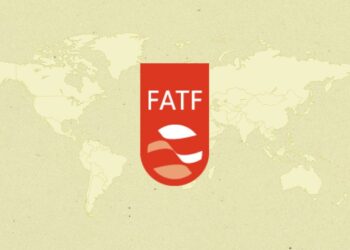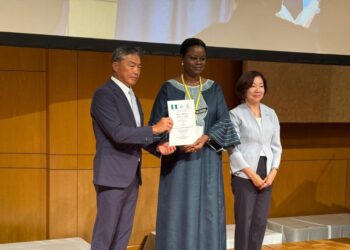The UK has introduced a funding initiative amounting to £210 million to construct advanced laboratories, and innovative disease surveillance systems, and to expand the global workforce to combat the severe issue of antimicrobial resistance (AMR) in Nigeria, as well as various nations across Africa and Asia.
The funding aims to significantly enhance surveillance capabilities in around 25 countries facing the most severe challenges of AMR.
The statement was issued on Thursday and signed by Atinuke Akande-Alegbe, the Senior Communications & Public Diplomacy Officer at the Foreign Commonwealth and Development Office/ British High Commission.
According to the statement, approximately 1.27 million individuals worldwide lose their lives annually due to antimicrobial resistance.
This phenomenon arises when bacteria evolve to a point where existing antibiotics and treatments are no longer effective against infections.
Alarmingly, one in every five of these deaths occurs in children under the age of five. In 2019, AMR was responsible for causing between 7,000 and 35,000 fatalities solely in the UK.
What the statement disclosed
In a document seen by Nairametrics, the statement disclosed that the UK government plans to allocate funds from its aid budget to support the efforts of the Fleming Fund in addressing antimicrobial resistance (AMR) across Asian and African nations over the upcoming three years.
This financial support aims to mitigate AMR’s threat to the UK and the global community.
Additionally, the statement emphasizes that the funding will strengthen surveillance capabilities in approximately 25 countries facing the most significant challenges and consequences of AMR.
This endeavour encompasses nations like Nigeria, Indonesia, Ghana, Kenya, and Papua New Guinea. The initiative will result in more than 250 laboratories benefiting from enhancements and the provision of cutting-edge equipment.
The statement further revealed that the investment includes new genome sequencing technology which will help track bacterial transmission between humans, animals, and the environment.
Reinforcing global healthcare workforce, microbiology scholarships, others
The finding is set to reinforce the global healthcare workforce by facilitating 20,000 training sessions aimed at laboratory personnel, pharmacists, and hospital staff.
Additionally, it will support over 200 scholarships through the Fleming Fund, aimed at enhancing expertise in microbiology, AMR policy, and the One Health concept, recognizing the interdependence of humans, animals, and the environment.
Curbing anti-microbial resistance
UK Secretary of State for Health and Social Care, Steve Barclay, had remarked earlier saying,
- “Antimicrobial resistance is a silent threat that significantly endangers global health, including within the UK. This issue will be a vital topic of discussion at the G20 summit in India.”
- “It must be stopped in its tracks and this record funding will allow countries most at risk to tackle it and prevent it from taking more lives across the world, ultimately making us safer at home.
- “It also builds on work the government is doing to incentivize drug companies to develop new antibiotics – a model which some G20 countries are looking to implement.”
Dame Sally Davies, the UK Special Envoy on AMR, expressed her optimism on this initiative. She said,
- “I am filled with pride and enthusiasm as the UK’s Fleming Fund continues to make tangible strides in addressing AMR and bolstering pandemic preparedness on a global scale. By leveraging data to inspire action and stimulate investment, this initiative is poised to create meaningful change on the ground.”
- “This world-leading investment in AMR laboratories, workforce, and systems is a vital contribution to realize our vision of a world free of drug-resistant infection.”
The statement said the present investment will deliver the second phase of the UK-Nigeria Fleming Fund partnership.

























This is a very good move. How can I benefit from the grant? I am a faculty member of the Department of Chemisry and Industrial Chemistry, Faculty of Pure and Applied Sciences, Kwara State University, Malete Nigeria. My research focus on isolation of bioactive natural products from medicinal plants via molecular networking and virtual screening approaches and investigation of biological properties of these compounds against multi-drug resistant bacteria.
This is a very good initiative…..please how can i participate. I just graduated Bsc Microbiology